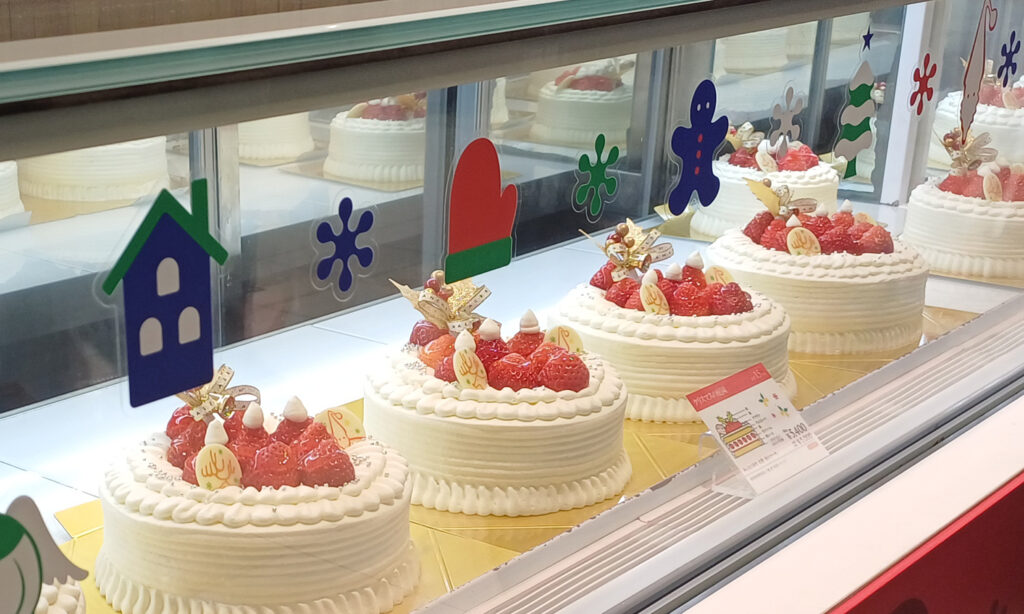Christmas cake prices have soared across Japan. Kanto Smart Living Cooperative suggests that people enjoy a warm Christmas in this era of high prices by using alternative desserts or making their own cakes.

TOKYO, JAPAN (MERXWIRE) – In Japan, enjoying Christmas cake has become a highly anticipated holiday ritual for many. However, recently, many people have exclaimed, “It’s too expensive!” when they saw the prices on pre-order flyers. This year, the average price of a Christmas cake has increased by about 500 yen compared to last year, making this festive dessert seem somewhat luxurious. In response, Kanto Smart Living Cooperative, an organization dedicated to smart living, suggests that people try making their own small cakes or using other desserts as alternatives, creating a warm Christmas atmosphere at a more affordable price.
According to statistics from Teikoku Databank, the average price of Christmas cakes in Japan has been rising steadily in recent years. The average price of eggs rose from 3,862 yen in 2021 to 4,084 yen in 2022, 4,412 yen in 2023, and further to 4,561 yen in 2024. Major Western-style confectionery manufacturers predict that the average selling price will further increase to approximately 5,400 yen in 2025, an increase of about 500 yen compared to last year.
The price increase is closely related to the overall rise in the cost of cake ingredients. According to statistics from the Ministry of Agriculture, Forestry and Fisheries and the Ministry of Internal Affairs and Communications, strawberry prices rose by about 22%, cream by 15%, flour and milk by about 4% each, and chocolate by a staggering 53%. Among all ingredients, egg prices saw the most significant increase, rising by 18% compared to the same period last year. Since eggs are a crucial ingredient in cake making, this change directly increased overall production costs.
In October of this year, the average wholesale price of medium-sized eggs in the Tokyo area was 326 yen per kilogram, setting a new record for the highest October price since records began in 1993. Prices in Osaka, Nagoya, and Fukuoka have all exceeded 330 yen, an increase of 50 to 60 yen, marking the 12th consecutive month higher than the same period last year. The Ministry of Agriculture, Forestry and Fisheries stated that the main reason for this surge is the supply shortage caused by the avian influenza outbreak. From last autumn to the beginning of this year, outbreaks of avian influenza have been reported at chicken farms across Japan, leading to the culling of many chickens and a prolonged shortage of eggs. In October, Hokkaido reported its first case of avian influenza this season, raising concerns that if the outbreak expands again, egg prices may remain high until the end of the year.
The owner of a cake shop in Tokyo stated that the continuously rising egg prices are causing headaches for businesses. In addition to increased costs, the peak demand season at the end of the year may bring another price increase, making it difficult for businesses to control pricing. For consumers, this reality adds a bitter touch to festive desserts.
In response to the significant price increase of Christmas cakes this year, the lifestyle knowledge organization “Kanto Smart Living Cooperative” offered three suggestions. First, people can choose smaller or half-sized cakes, which can maintain the festive atmosphere while reducing the financial burden. Secondly, making cakes at home is becoming an increasingly popular option. The organization suggests using simple premixed powders and seasonal fruits instead of expensive ingredients, which is not only more affordable but also adds to the family fun. Thirdly, for families who value practicality, consider using puddings, pies, or fruit tarts as alternatives to desserts, which can still create a Christmas atmosphere at a lower cost. The organization emphasizes that in an era of continuously rising prices, changing consumption habits and making flexible choices is a smart way to enjoy the holiday season.
For many Japanese families, while this year’s Christmas cake is still sweet, it also reflects the realities of life surrounded by the pressure of rising prices. Balancing “taste happiness” with “real expenses” between high-priced ingredients and festive sentiment has become a common challenge this winter.
Media Contacts:
Kanto Smart Living Cooperative
PR Agency:
MERXWIRE INC.
Ada Huang
pr@merxwire.com
SOURCE: Kanto Smart Living Cooperative



